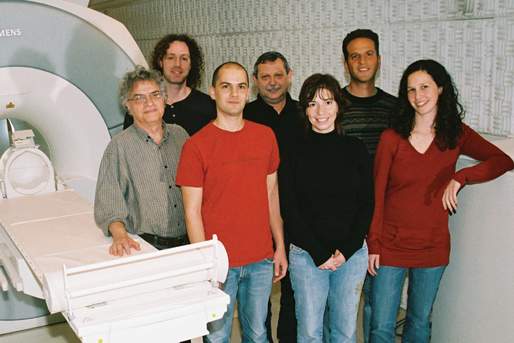Everyone has repressed memories.Though most of the time we’re unaware of it, that action can spare us emotional pain and embarrassment, and even preserve our internal world view. The failure of this normal mechanism, however, may result in emotional and cognitive problems. What prevents certain memories from surfacing while others flood our consciousness at will? Where is the elusive gatekeeper that keeps some memories firmly outside the doors of our awareness? Prof. Yadin Dudai, Head of the Neurobiology Department, and his research team recently shed light on memory repression and pinpointed an area in the brain that acts as memory’s gatekeeper.
Their study used an intriguing phenomenon, dubbed “post-hypnotic amnesia” – a transient, controlled loss of specific memories following a hypnotic session. The research, which relied on advanced brain imaging techniques, was recently featured in Neuron. Dudai and research student Avi Mendelson, together with medical hypnosis experts Dr. Yossi Chalamish and Prof. Alexander Solomonovich of the Wolfson Medical Center, chose as their research subjects people who are especially susceptible to hypnotic suggestion. In these volunteers they were able to induce post-hypnotic amnesia: While under hypnosis, the subjects were told to forget, upon exiting the hypnotic state, particular events they had experienced a week earlier. When a specific signal agreed upon by the subject was given later, the memory loss was reversed, allowing the subject to recall the repressed memories.
Dudai and his team produced a 45-minute documentary, which they then showed to the participants. A week later, the same participants returned for the second half of the experiment. One by one, they entered the functional magnetic resonance imaging (fMRI) scanner and underwent hypnosis. Once under, they were told to forget the film upon waking and were also instructed as to the signal. The subjects were brought out of hypnosis and, while still being scanned in the fMRI, were given a quiz that included questions about both the film and the room in which the film was screened. They were then given the signal to remember and asked to retake the quiz. A control group followed the same routine, but did not undergo post-hypnotic amnesia.
The hypnosis subjects could not recall the details of the film the first time they took the quiz, though they did remember the context in which the film was screened. The second time, after receiving the agreed-upon signal, they were able to recall the film as well. In other words, their memory of the film had not been lost, only repressed. In analyzing the fMRI data, the scientists noted that some parts of the brains of those experiencing post-hypnotic amnesia had depressed levels of activity in specific brain circuits, but, interestingly, in one small area the activity was significantly heightened. This area is part of a larger area called Brodmann area 10, which is involved, among other things, in memory retrieval. They concluded that the area they identified “vetoes” the recall of specific items in long-term memory. Further research along these lines might shed light on common memory problems such as functional amnesia or cognitive and behavioral pathologies associated with the overrepression of certain memories.
Prof. Yadin Dudai’s research is supported by the Norman and Helen Asher Center for Brain Imaging; the Nella and Leon Benoziyo Center for Neurological Diseases; the Carl and Micaela Einhorn-Dominic Brain Research Institute; the Irwin Green Alzheimer’s Research Fund; Mr. Rowland Schaefer, New York, NY; and the Sylvia and Martin Snow Charitable Foundation. Prof. Dudai is the incumbent of the Sara and Michael Sela Professorial Chair of Neurobiology.
